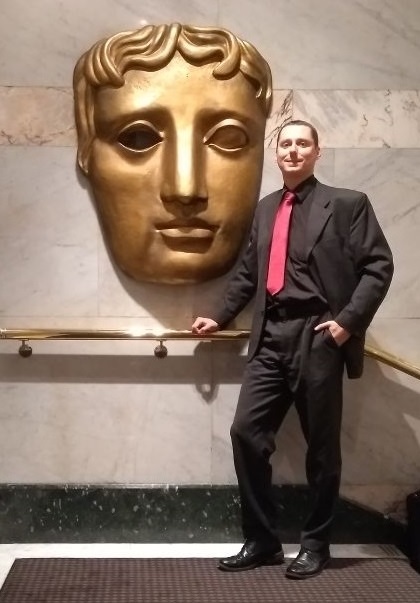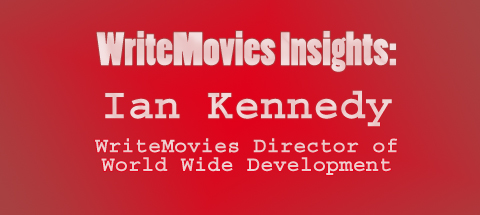
by John | Dec 2, 2019 | Rom-Com award
Our celebration of great writing continues with our latest genre prize. After the great success of our Sci-Fi and Fantasy and Horror awards, we are proud to announce the first ever WriteMovies Romance and Comedy Award!
Do you like to make people laugh with great comedy? Are you a fan of stories about enduring love and relationships? Or do you like to blend the two into that most classic of genres, the rom-com? Then this is the contest for you!
The WriteMovies Romance and Comedy Award is here to celebrate scripts that lift our spirits through laughter or inspire us with passionate love – or a bit of both! We’ll be accepting scripts in the genres of both comedy and romance, plus the crossover genre of the romantic-comedy.
The winner of this prize will receive:
- Guaranteed pitching to industry
- Two sets of Development Notes to help take their script to the next level
- Further advice to fine tune their script from our experts
Plus, every entry to this award will receive free, automatic entry to the WriteMovies Winter 2020 Screenwriting Contest!
So it’s time to get writing. Standard entry to this award lasts until Sunday 5th January, with the final deadline on Sunday February 9th! Click here to visit the main contest page and submit your script!

by WriteMovies | Feb 8, 2019 | Highlights, Ian Kennedy, Writing Insights

Since it’s their results week too as we publish this, here’s a pic of Ian Kennedy, our Director of Worldwide Development, at BAFTA for a recent meeting with our founder Alex Ross!
Announcing results is the tough bit… especially at the Quarter-Final stage, where we have the most decisions to make, and the most people’s to disappoint about their writing submissions. At WriteMovies we make it our job to constantly open a door for writers and push their work to the next level, and take the ones that are ready into the international industry – but everyone is starting from a different place and whatever level a writer reaches they always have further steps to take to succeed and sustain themselves in the industry. To help you understand our logic and tips for how to make your work stand out to us, our Director Ian likes to write articles about “What Your Writing Has Been Telling Us” over this time. (more…)

by WriteMovies | Mar 25, 2016 | Studio Consulting, Trainees' Examples
“’What-if’ questions often generate very enjoyable writing, especially in the romantic comedy genre, for which we’re more happy to suspend our disbelief than usual…” Comments by us and Extracts from a script report by our trainee Daniela Piper-Vegh, based on a reading of the script 17 AGAIN: CLICK HERE (more…)

by WriteMovies | Mar 19, 2016 | Ian Kennedy, Writing Insights

By Ian Kennedy, WriteMovies Director of World Wide Development:
Genre is so often key to convincing producers, and audiences, to take an interest in your story. Yet at the same time, I hear lots of writers and viewers complaining about formulaic, predictable, derivative stories that lack originality and interest precisely because of their adherence to a genre. So why does genre matter so much, for better and worse?
The more I’ve explored this subject – in my classes and meetings with writers, and in my own work – the clearer the subject has become to me. To my mind, genre exists – and works – because fundamentally, it tells us what kind of emotion we can expect to feel while we experience a certain story.
Here are a few famous genres, and the emotions that we can expect any good story in that genre to give us. The clearer and stronger the emotion, the more clearly it fits its overall genre – and this is why ‘genre stories’ work and appeal. But if a story belongs to one of these genres, and fails to generate the emotional effect that we expect, audiences will probably say it’s a bad story (even if they’re wrong and the film later goes on to become a cult classic!). Meanwhile, of course, you can blend several of these genres at once, to give audiences a new way of experiencing a familiar emotion – and doing so is often very successful at the box office. In any case, you’ll probably span a few of these emotional effects within any satisfying story, even if you don’t cross genre boundaries (for long).
- COMEDY – should give audiences laughter and humour.
- HORROR – fear.
- ACTION – excitement and danger, leading to elation and triumph.
- THRILLER – excitement, suspense.
- PSYCHOLOGICAL THRILLER – uncertainty and anticipation.
- SCIENCE FICTION, SUPERHEROES, and FANTASY, and also RELIGIOUS STORIES – awe and wonder – plus any of the other genre effects mentioned here (because more ordinary stories and genres and emotional effects are also present in every scene, within an exotic genre like this).
- DRAMA – is actually about concern (for better or worse) for other people (usually people who we’d like to feel are ‘like us’ in some important way!) and what will happen to them.
- MYSTERY – confusion and revelation.
- CRIME – fascination. Fascination with how other people can do things that we would like to convince ourselves are unthinkable. For audiences, the pleasure (or relief!) comes in the explaining, solving, and punishing, of the crimes we see. This is all true of gangster stories (such as in THE SOPRANOS) because the punishment and consequences for criminals who transgress or get unlucky is often administered internally by other gangsters and criminals rather than by external law enforcers. The automatically high stakes and consequences – for all characters at all times – plays a big role in making this subgenre so compelling.
- ROMANCE – love (even towards a character who isn’t real who we will never meet) and affection (towards the person of our own gender/circumstance who is aspiring towards that love interest).
It might seem counterintuitive at times, when we ask ourselves why audiences are drawn to particular genres that give them emotions which they would avoid in real life. But these questions often miss the point of why human beings are drawn to stories at all. Our own lives are usually quiet and unremarkable – in fact we’ll usually go to lengths to keep them that way. Which is why we rely on stories in order to take us into spaces and feelings that – to our relief – our own lives never will, so that we can still feel like we’re experiencing rounded and emotionally varied lives, even though we probably aren’t.
Endings are particularly interesting ways to play with audience expectations. Because – by that point – a story has already achieved the overall tone and emotion that audiences would expect, the writer has the opportunity to either elate us (with an uplifting ending) or sadden us (with a downbeat ending), or sometimes to challenge us with an indeterminate ending or cliffhanger. Because of the big uplift in audiences’ emotions, most writers and producers play it safe by giving us an upbeat ending. This is another key reason why we get frustrated with predictable happy endings, and feel that writers have stuck too closely to our expectations of the genre; unconvincing or indulgent happy endings feel like an insult to our intelligence. Downbeat endings are often more plausible and intellectually rewarding, but it’s a risk to take with our audience’s feelings – we can end up feeling hurt and betrayed, even bereft, when characters we care about are left to suffer or die.
So writers always need to remember what emotional effect they want to have on their audience – and what emotional effect their audience will be expecting a story of this type to have on them. This is at the heart of making every scene and every sequence work well. You can play with our expectations and surprise us – in fact you will probably need to – but the key to it is to still give us the emotional effect we expect, in a way that we wouldn’t have expected. And if you don’t respect and value the expectations that audiences will bring to your story, you’ll probably find that they soon feel the same way about you and whatever story you’ve arrogantly or complacently tried to palm them off with.
Suggestions for developing this in your work
- Think of other genres or subgenres not yet covered here. What emotional effects are at the heart of these genres?
- Think about the endings of successful stories in each genre. What emotional effect do they leave the audience with, at the moment when the audience leave the story again at the end? Why? What marks out the finest examples of the genre from the disappointing ones?
- Look at your past writing. Try to find the genre and emotional effect you most often try to bring about in your audiences. What does it tell you about your aspirations and priorities as a writer? How can that help you find your own distinctive voice and identity as a writer – the must-have quality that will lead producers to come to you when they want to achieve a certain effect or tone? What do you need to do with the style or genre that you favour, to elevate your writing – and particularly its effect upon the audience – to a level that its genre has never been before?
Exclusive to WriteMovies – To syndicate this content for your own publication, contact ian (at) writemovies dot-com.
© WriteMovies 2017






